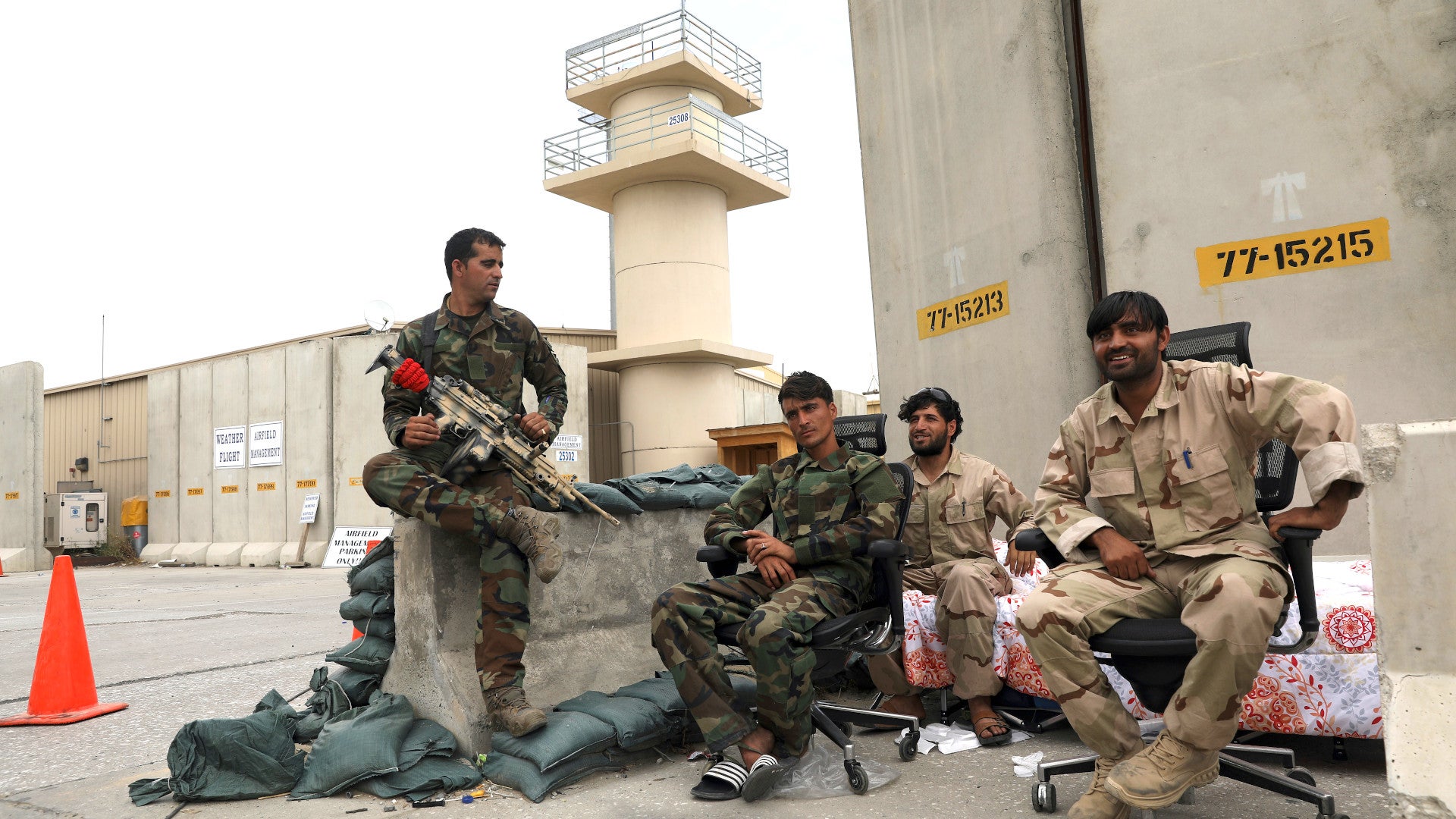New details about the U.S. military’s sudden, nighttime departure from Bagram Airfield in Afghanistan, which had been a major hub for the United States and the NATO-led coalition in the country for nearly 20 years, emerged over the weekend. The last Americans reportedly left unannounced, ostensibly for operational security reasons, but they turned off the power, which in turn cut the running water at the base, as they departed. The nature of this withdrawal came as a shock to Afghan troops who are now stationed at the base and created chaos that allowed looters to break in. However, all of this may not have been surprising to whoever wrote a story for the famed satirical “news outlet” The Onion a decade ago that described a very similar end to the U.S. military’s presence at this base.
The Wall Street Journal was the first to reveal that American forces had killed the power and shut off the water to the sprawling base late on Friday, July 2, as they withdrew. Other outlets have since reported additional details about what happened at the facility, which, among other things, houses a prison with approximately 5,000 inmates, most of whom are believed to be members of the Taliban or ISIS’ franchise in Afghanistan. U.S. officials insist that, while the exact timing of the departure had been kept secret, they had been closely coordinating with their Afghan counterparts regarding the plan for weeks. Afghan authorities, including the new commander at Bagram, have offered very different views of the events.
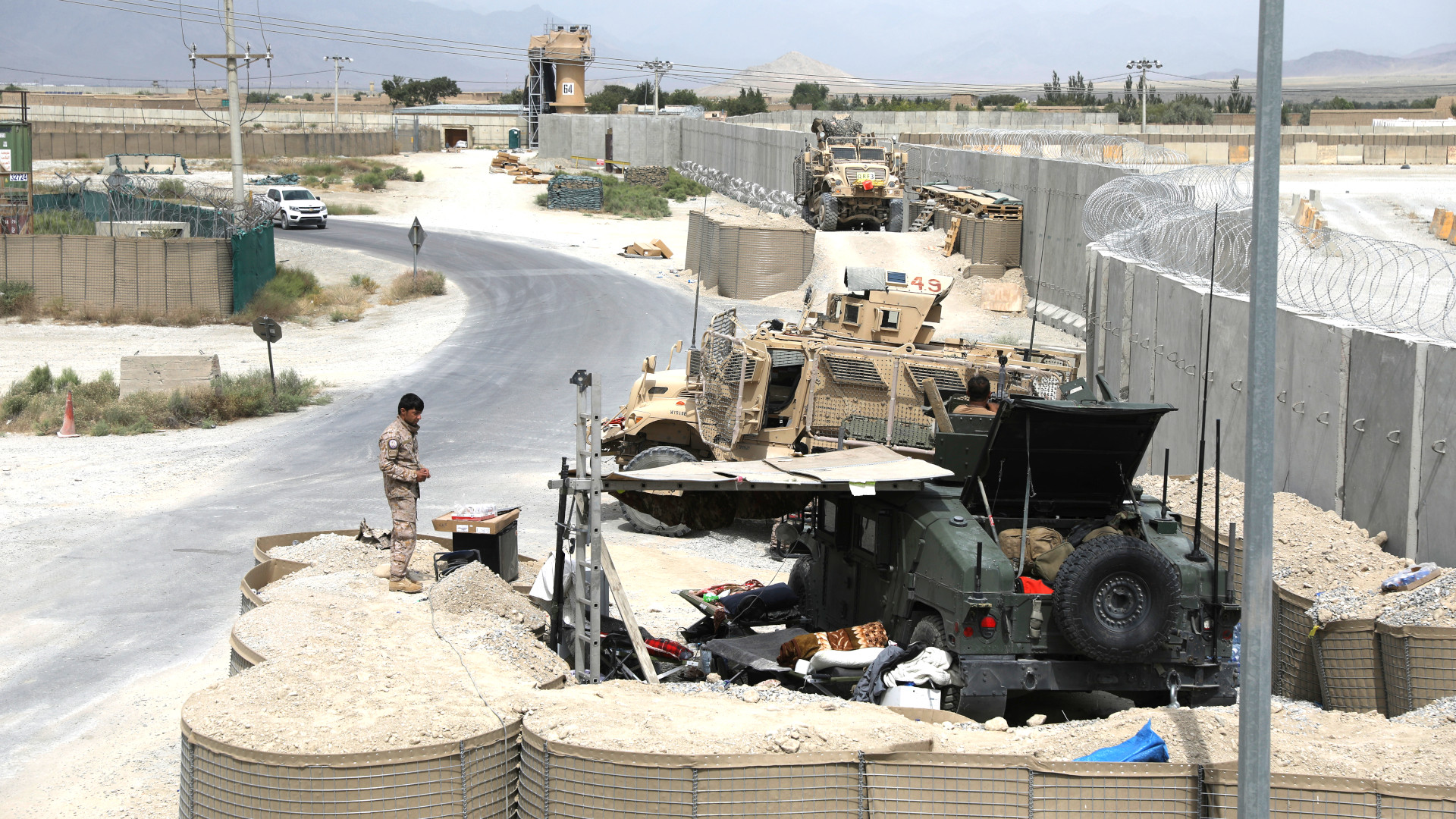
“We (heard) some rumor that the Americans had left Bagram,” Afghan General Mir Asadullah Kohistani, who is now in charge of Bagram, told The Associated Press. “Finally by seven o’clock in the morning, we understood that it was confirmed that they had already left Bagram.
This was two hours after the last Americans had reportedly gone. An Afghan soldier who The Associated Press interviewed, named Abdul Raouf, said U.S. military officials subsequently called to say “we are here at the airport in Kabul.”
Whatever the plan had been, Afghan forces at Bagram were incapable of preventing looters from almost immediately gaining access to the facility. “It just went dark,” another Afghan soldier, only identified as Sergeant Ehsanullah, told The Journal about what happened. The unexpected loss of power reportedly came just as Afghan forces at the base were preparing for dinner.
The U.S. military reportedly left some 3.5 million individual items, ranging from Mine Resistant Ambush Protected (MRAP) armored trucks to bottles of water, at Bagram, and much more in between, all of which now belongs to the Afghan government, whether it wants it or not. “Afghan officials said they don’t know what to do with much of the American stuff they now own,” according to The Journal. “Gen. Kohistani said he appreciated some of the remaining infrastructure, including a 50-bed hospital, fuel storage tanks, other military and civilian equipment and radars for the flight operations.”

“Kohistani said the U.S. also left behind small weapons and the ammunition for them, but the departing troops took heavy weapons with them,” The Associated Press‘ report added. “Ammunition for weapons not being left behind for the Afghan military was blown up before they left.”
There were previously reports about U.S. forces in Afghanistan destroying military vehicles and other materiel not destined to be turned over to the Afghans. It is often U.S. government policy to physically destroy defense and security-related equipment if it determined, for whatever reason, that it cannot be transferred from one entity to another, internally, or to foreign allies or partners.
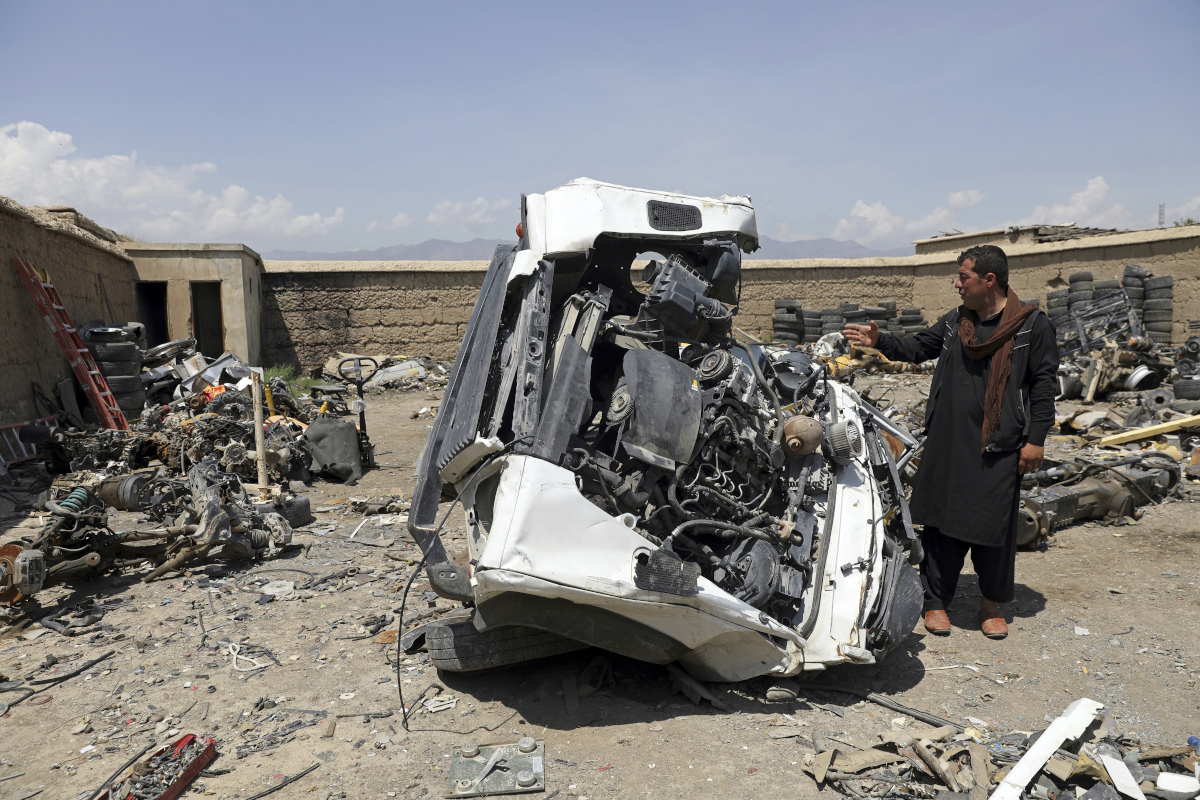
It’s not hard to see how much of what was leftover at Bagram would’ve been of interest to looters. There were also concerns initially that these individuals were actually Taliban militants. The group has been making significant gains across Afghanistan in recent weeks as U.S. and coalitions forces withdraw from bases throughout the country. Its forces are reportedly operating in the general vicinity of the base, which lies just 40 miles or so northeast of Kabul. Afghan authorities insisted that they had complete control over the facility by the end of Friday.
“In one night, they [the Americans] lost all the goodwill of 20 years by leaving the way they did, in the night, without telling the Afghan soldiers who were outside patrolling the area,” another Afghan soldier, who The Journal identified simply as Naematullah, said.
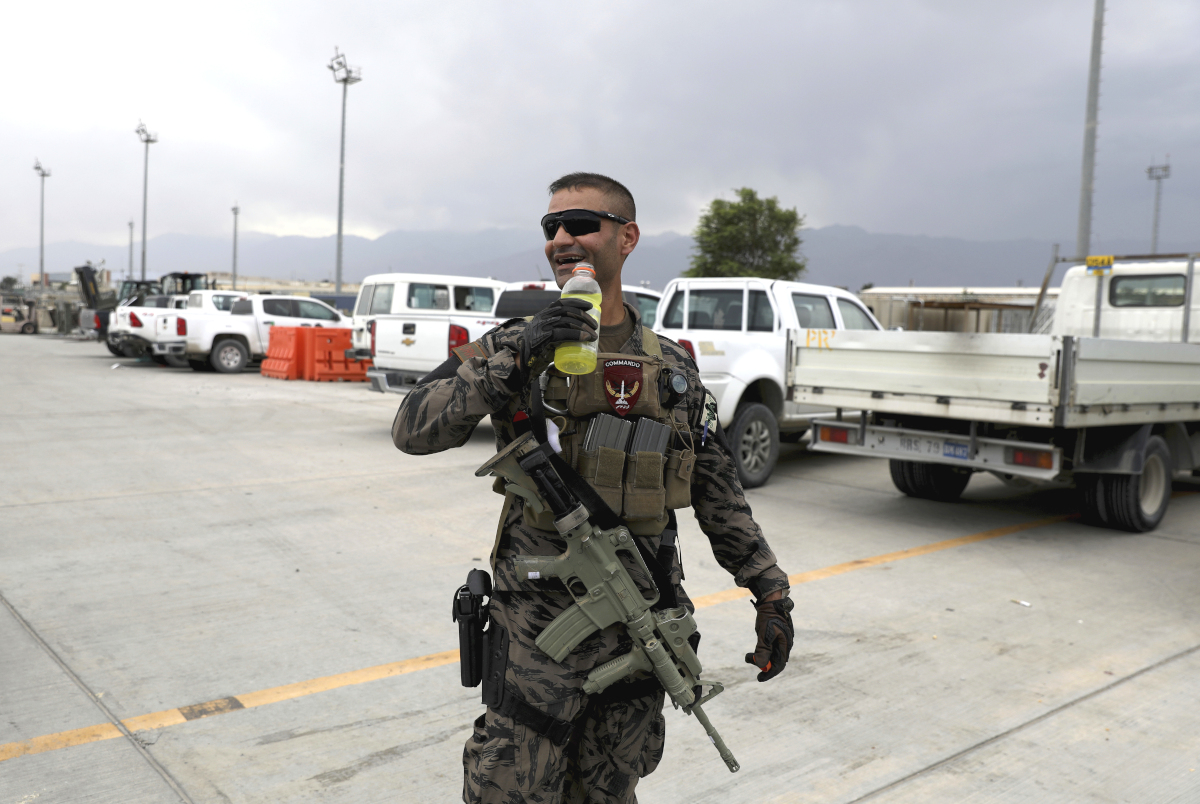
If the nature of this U.S. withdrawal of Bagram came as something of a shock to people inside and outside of Afghanistan, it may not have been so unexpected for the person who wrote a piece for The Onion titled “U.S. Quietly Slips Out Of Afghanistan In Dead Of Night,” which was published on July 18, 2011. That entirely fictitious story described a farcical departure of American troops from Bagram, who left only a “Dear John” letter behind.
“By the time you read this, we will be gone,” the note read, according to the piece. “We regret any pain this may cause you, but this was something we needed to do.”
“According to firsthand accounts, the 90,000 American troops stationed in Afghanistan lay in their beds pretending to be asleep until well after midnight Tuesday,” the piece continues. “They then reportedly tiptoed out to a fleet of awaiting Humvees, tanks, armored cars, and stealth aircraft; gently eased the doors shut; and departed as silently as possible so as not to wake the 30-million-person nation.”
“We just couldn’t bear to look the Afghan people in the eye and tell them flat out that we were packing up and leaving,” a fake quote attributed to then-U.S. Army General David Petraeus, head of U.S. forces in Afghanistan at the time, reads. “So we decided to sneak out the back through Tajikistan while the country was asleep.”
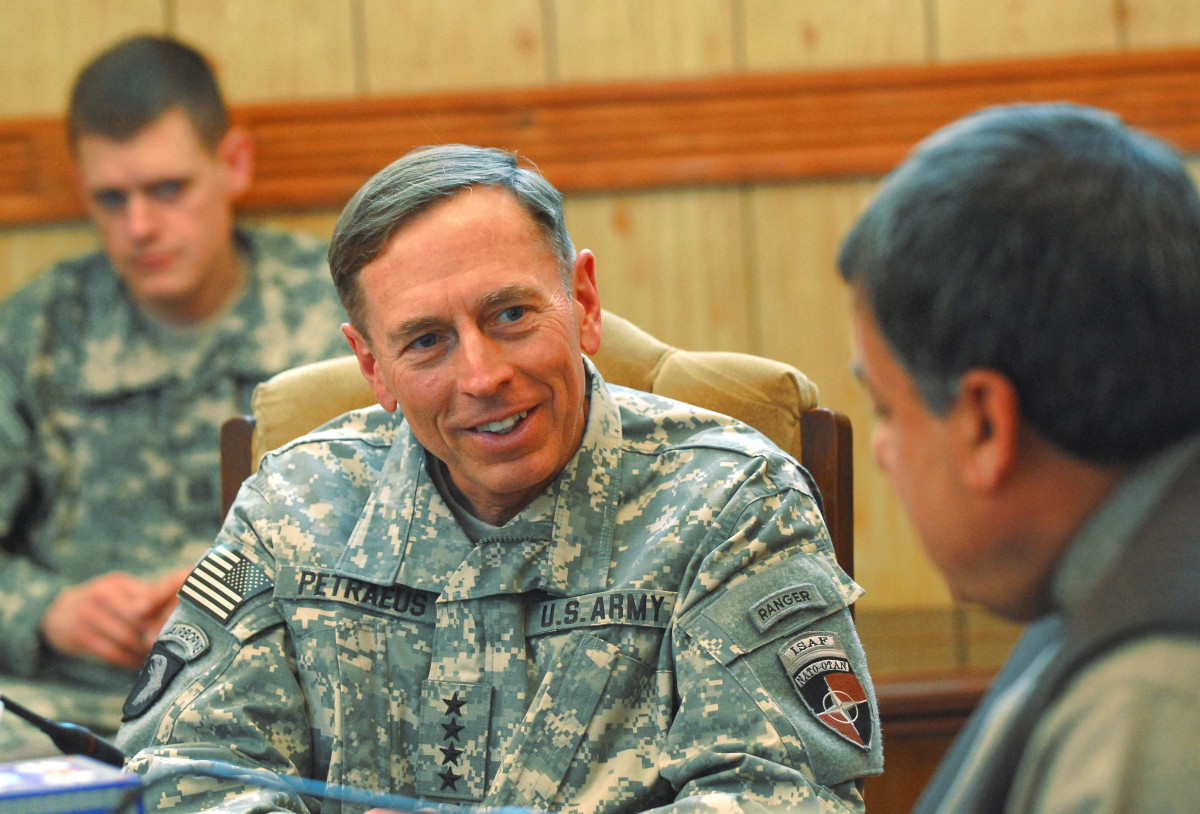
Yesterday, the real-world President of Tajikistan, Emomali Rakhmon, called up thousands of reservists to be deployed to the border with Afghanistan after more than 1,000 members of the Afghan security forces fled into the country in the face of the advancing Taliban. There had also been some discussion in the past about the potential of basing American troops in Tajikistan, or other countries in Central Asia, to be better positioned to respond to future contingencies in Afghanistan.
“We could have slowly and steadily withdrawn from Afghanistan, but trust me, that would have needlessly prolonged what we both knew deep down was an unhealthy, dead-end relationship,” The Onion‘s fictional Petraeus adds. “We’re not proud of it, but it was the least painful option for everyone.”
“We couldn’t go on like this forever,” according to The Onion‘s fake Dear John letter.

Though satirical, all of this does, in many ways, appear to reflect the actual current thinking within President Joe Biden’s Administration, which has been pushing ahead with a near-total withdrawal of American forces from Afghanistan after nearly two decades of operations there. “The president has judged that a conditions-based approach, which has been the approach of the past two decades, is a recipe for staying in Afghanistan forever,” a senior U.S. official had told reporters about Biden’s withdrawal plans back in April.
The initial plan had been for the pullout to be complete on or before the 20th anniversary of the 9/11 terrorist attacks, which prompted the American intervention, to begin with. Now, it looks as if the entire process will be done by August.
“I want to talk about happy things,” President Biden had said, exasperated, during a press conference on Friday, when asked about the withdrawal and the deteriorating security situation in the country. “I’m not going to answer any more questions about Afghanistan.”
“Look, It’s the Fourth of July,” he continued. “We’re bringing our troops home. All across America, people are going to ballgames and doing good things … I’ll answer all your negative questions – not negative, legitimate questions [later on.]”
The President had already made it very clear how he felt about the U.S. mission in Afghanistan on the campaign trail last year in an interview with CBS News‘ “Face The Nation.” Then-candidate Biden said he felt he would bear “zero responsibility” if the Taliban were to return to power after an American withdrawal. “I opposed the surge in the first place,” Biden said, referring to President Barack Obama’s decision to send additional forces to Afghanistan in 2009, when he was Vice President.
“When we went into this, everything seemed so perfect—that first democratic election in 2004, Operation Anaconda—those were great times. But we’ve grown so far apart since then. Sometimes it’s hard to remember why we even got involved in the first place,” another fake quote in The Onion‘s 2011 piece, attributed to U.S. Marine Corps General James Mattis, who was head of U.S. Central Command at that time and later became President Donald Trump’s first Secretary of Defense, reads. “He assured the war-torn nation Americans would never forget about them and promised the U.S. would send several hundred million dollars back to Kabul from time to time to make sure they were getting along okay.”
The Pentagon said last week that Marine Corps General Frank McKenzie, who is the current CENTCOM head and is not physically in Afghanistan, is set to take over direct command authority for continued U.S. military activity in the country this month. The main office for coordinating U.S. security assistance to the government in Kabul will be relocated to Qatar. A small American military force will be positioned at Hamid Karzai International Airport in the Afghan capital.
What exactly will happen to other armed U.S. personnel, including members of the Central Intelligence Agency and U.S. State Department, as well as the contractors working for them, is unclear, as you can read about more in this recent War Zone piece. What might happen to the government in Kabul is equally uncertain, with the U.S. Intelligence Community having warned that it could collapse within six months of the completion of the American pullout.
In addition to the reports of the members of the Afghan security forces recently fleeing into Tajikistan, there has been substantial other evidence of other units across the country collapsing entirely. The Taliban have seized hundreds of military vehicles, as well as weapons, ammunition, and other material as a result. Just today, a picture emerged online that purported to show militants with a captured Afghan Air Force Mi-8/Mi-17-type helicopter. At least some of the Taliban’s new acquisitions have also come from Afghan government forces directly as part of deals to secure their safe passage out of certain areas.
This, coupled with how the withdrawal is proceeding, has opened the U.S. government up to criticism, including from major geopolitical competitors. “We are worried about this, because IS [the Islamic State] is actively acquiring territories – mostly in Northern Afghanistan, right on the borders of countries that are our allies, amid the irresponsible behavior of some officials in Kabul and amid the hasty withdrawal of NATO, who is unable to report the achievement of at least some goals,” Russian Foreign Minister Sergey Lavrov said last week. There are also reports that China could be poised to increase its influence in the country after the U.S. pullout is complete.
“The U.S. told us they cared and that they had our best interests at heart,” The Onion quoted a fictitious Pashtun tribal leader named Ashraf Rahman Durrani as saying in the 2011 piece. “We’re a strong, proud nation, though. We’ve been through a lot, and we’ll find a way to get through this, too.”
“We have to solve our problem,” Bagram’s new real-life commander, General Kohistani, told The Associated Press. “We have to secure our country and once again build our country with our own hands.”
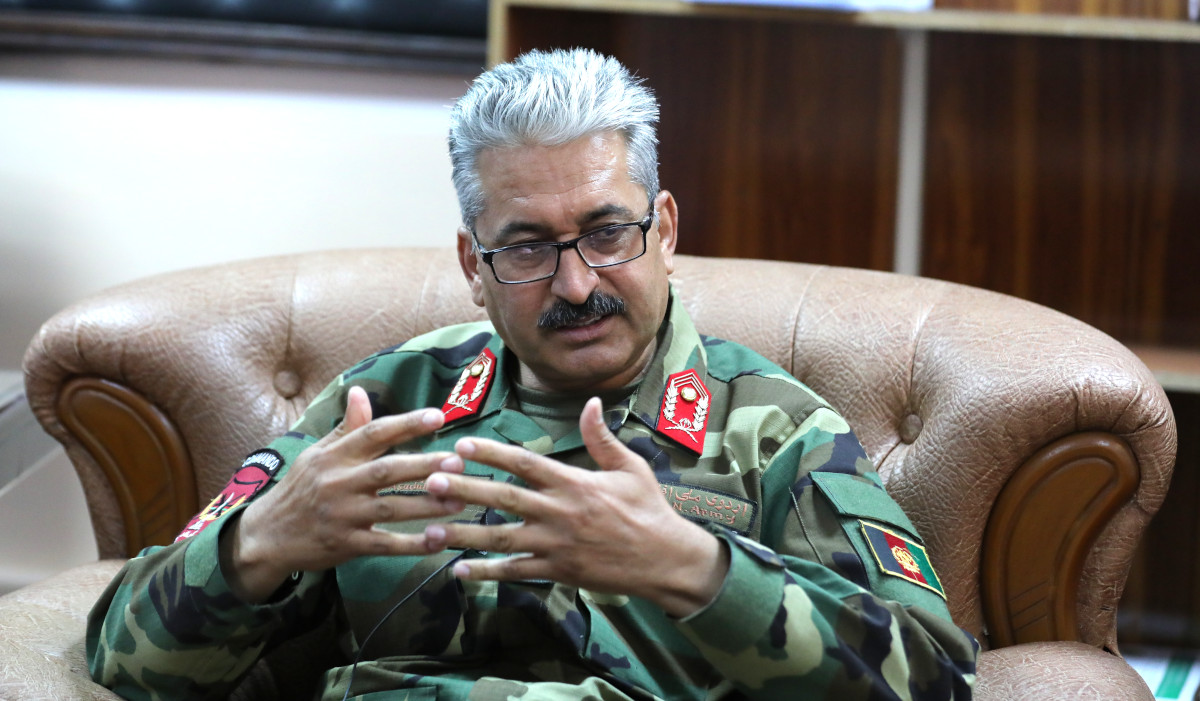
Whatever happens now, the American departure from Bagram seems indicative of the inexorable nature of the current overall withdrawal plan, a decision that The Onion oddly predicted nearly 10 years ago.
Contact the author: joe@thedrive.com
